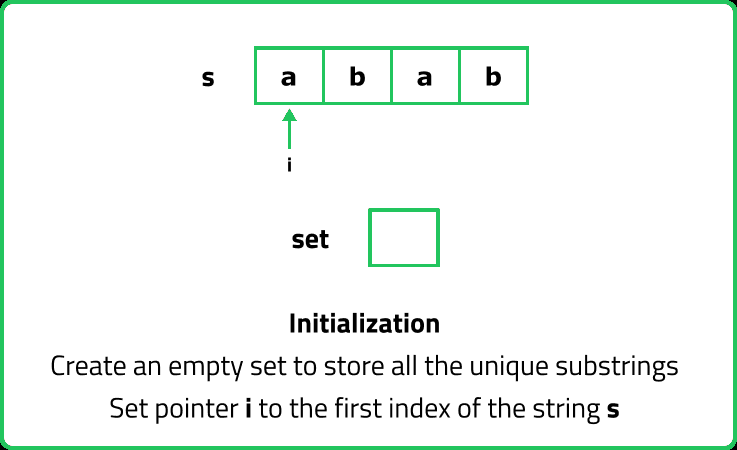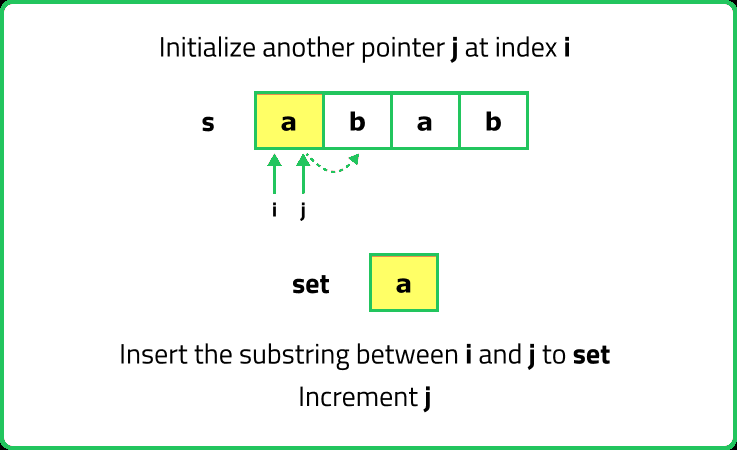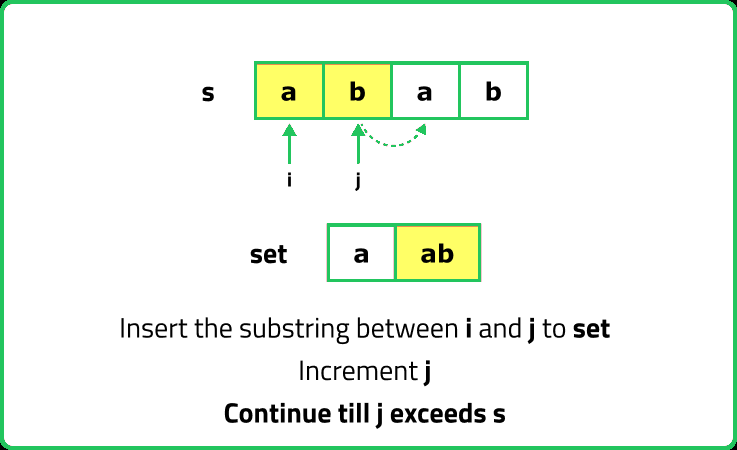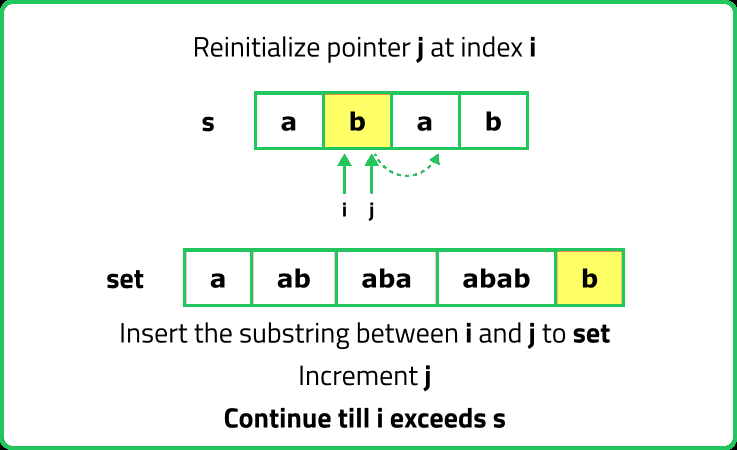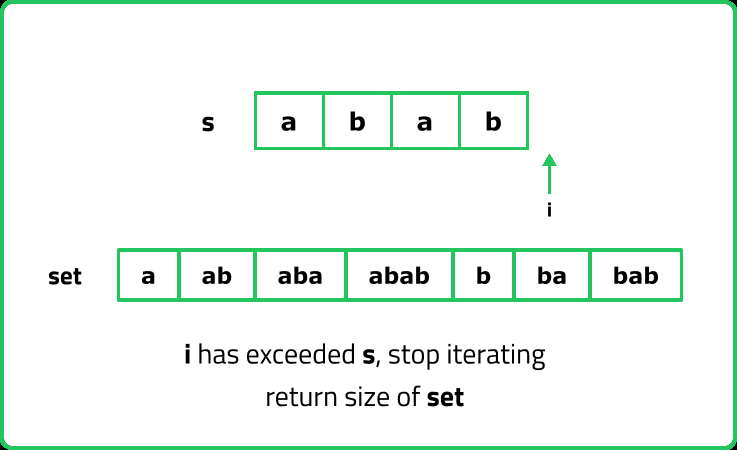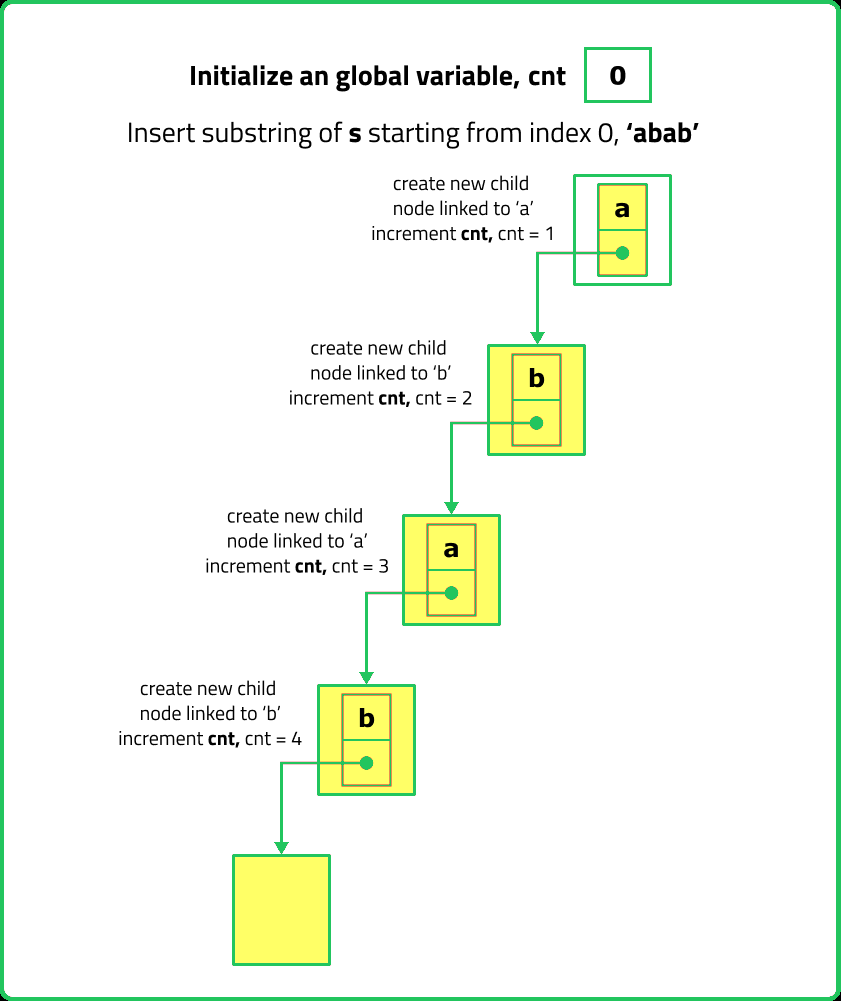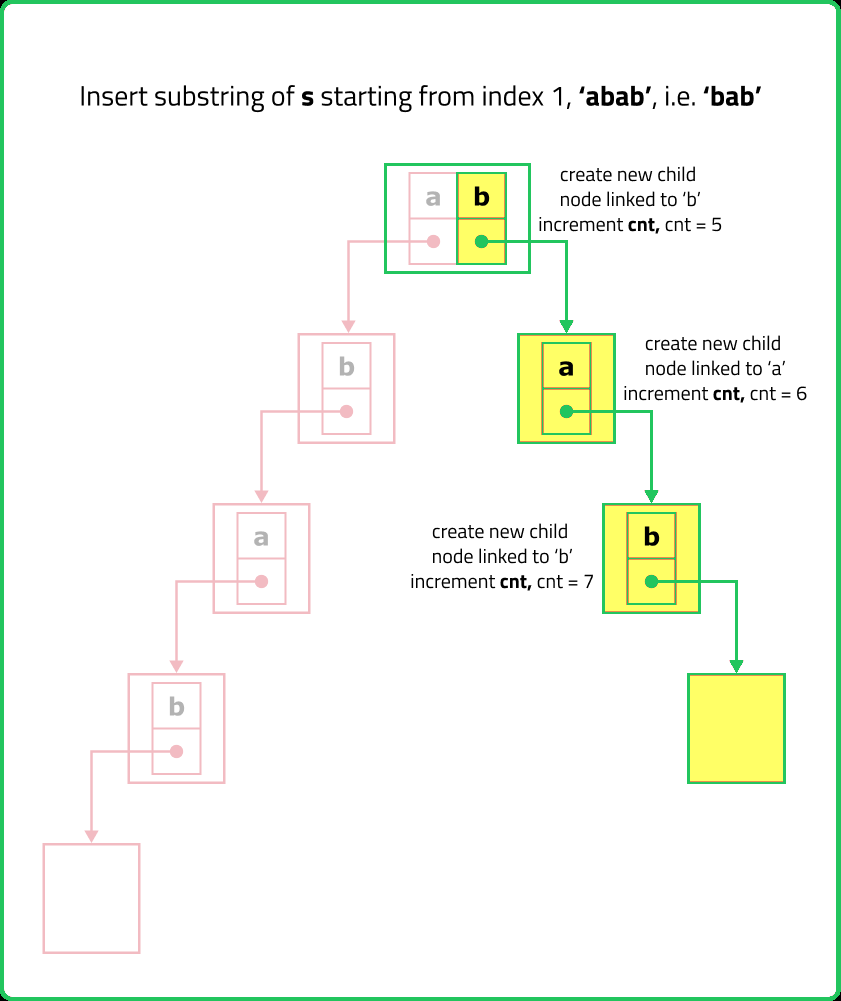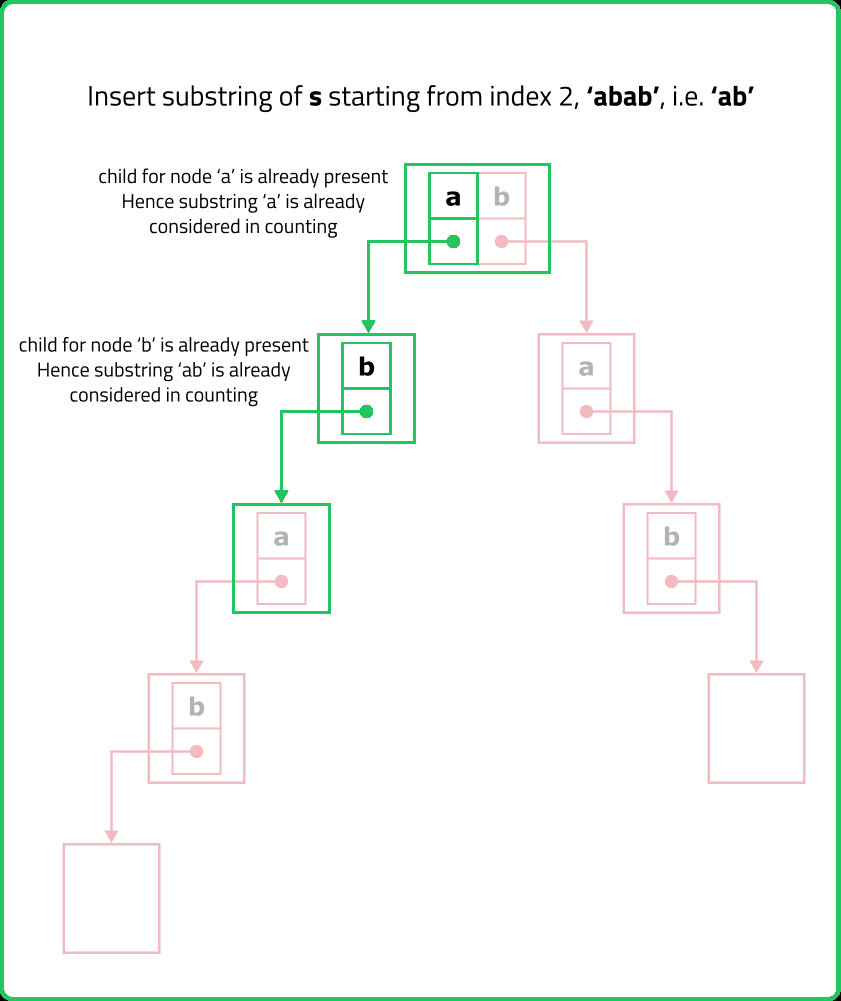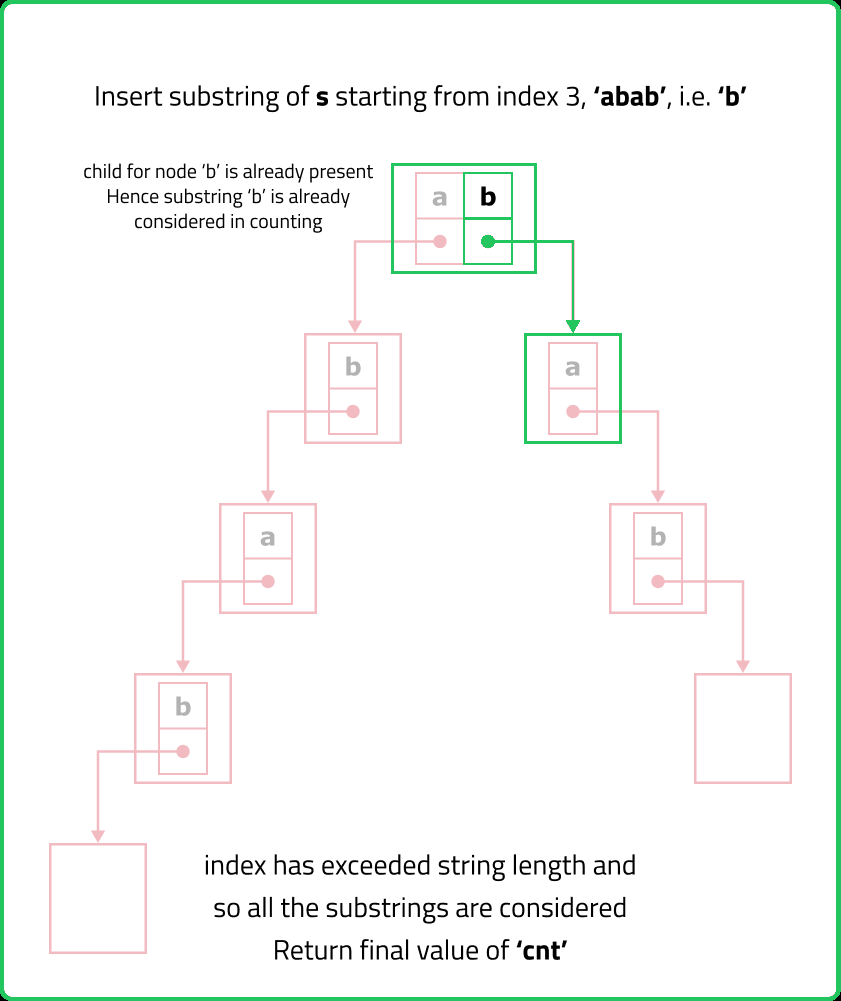Number of distinct substrings in a string
Tries
Problems
Hard
Given a string s, determine the number of distinct substrings (including the empty substring) of the given string.
A string B is a substring of a string A if B can be obtained by deleting several characters (possibly none) from the start of A and several characters (possibly none) from the end of A. Two strings X and Y are considered different if there is at least one index i such that the character of X at index i is different from the character of Y at index i (X[i] != Y[i]).
Examples:
Input : s = "aba"
Output : 6
Explanation : The distinct substrings are "a", "ab", "ba", "b", "aba", "".
Input : s = "abc"
Output : 7
Explanation : The distinct substrings are "a", "ab", "abc", "b", "bc", "c", "".
Input : s = "aaabc"
Constraints
- 1 <= s.length <= 103
- s consist of only lowercase English letters.
Hints
- A Trie-based approach can be used by inserting all suffixes of s into a Trie and counting the total number of distinct substrings contributed by each suffix. However, this approach may be memory-intensive for long strings.
- "A more optimized approach is the Suffix Array + LCP (Longest Common Prefix) method: Construct a Suffix Array to sort all suffixes of s in lexicographical order. Compute the LCP array, which stores the longest common prefix between adjacent suffixes. The total number of distinct substrings is given by the sum of lengths of suffixes minus the LCP contributions."
Company Tags
Databricks
MongoDB
OYO Rooms
IBM
Intel
DoorDash
Cloudflare
McKinsey & Company
Splunk
Seagate Technology
Wayfair
Bloomberg
JPMorgan Chase
Texas Instruments
Instacart
Bain & Company
Morgan Stanley
Ubisoft
Western Digital
Unity Technologies
Byju's
HCL Technologies
Boston Consulting Group
Johnson & Johnson
HashiCorp
Google
Microsoft
Amazon
Meta
Apple
Netflix
Adobe
